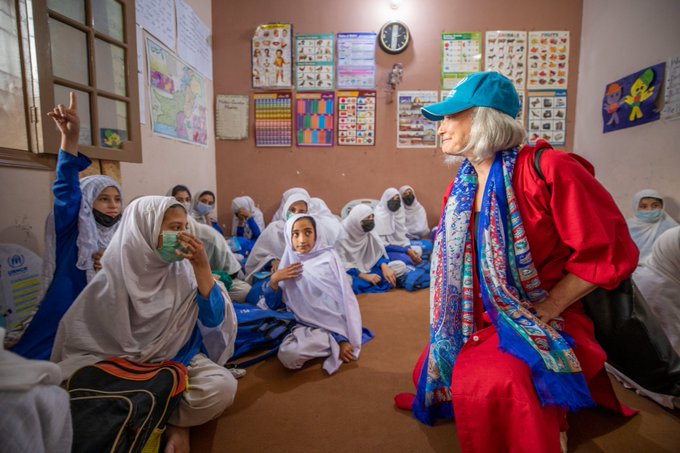UNHCR Pakistan makes an effort to prioritise ensuring that refugee children, particularly refugee females, have access to education. Even though UNHCR Pakistan offers Afghan refugee students access to free primary and (in some areas) secondary education through 153 schools, 48 satellite classes, 55 home-based girls’ schools, and 13 early childhood education centres in refugee villages, the organisation also works with the government of Pakistan through CCAR Islamabad to provide access to education to +55,000 refugee children in 144 refugee village schools in Pakistan.
Through these measures, education is provided to almost 57,000 refugee children who reside in 54 refugee communities throughout Pakistan. Additionally, under the Albert Einstein German Academic Refugee Initiative, UNHCR offers tertiary-level scholarships to Afghan refugee youngsters (DAFI). Most of the recipients are between the ages of 17 and 30. In 2018, 400, On DAFI scholarship, students are now enrolled at several universities in Pakistan.
In order to avoid providing a parallel education system, make the most of available resources, and promote peaceful coexistence between children from refugees and local communities, UNHCR’s education strategy aims to make it easier for Afghan children to enrol in nearby public schools when they are available.
One of the methods the UNHCR employs to assist this process is to focus Refugee Affected and Hosting Areas (RAHA) resources on enhancing current public educational facilities that are conveniently located near refugee villages. This improves the institutions’ capacity to absorb newcomers, which benefits both host communities and refugee populations and promotes social cohesion.















